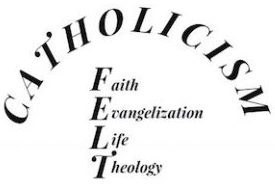“Give me liberty or give me death!” With these notable words articulated in a 1775 speech, Patrick Henry expressed the immense desire he possessed for freedom. This statement summed up the plea that ultimately impelled the Virginia House of Burgesses to mobilize for military action. A few weeks later, the American Revolution marked the beginning of the intense struggle in which thirteen of Great Britain’s North American colonies eventually obtained their independence. Today, the 4th of July celebrates the United States of America’s Day of Independence as it recalls when this country declared its independence from Great Britain. Freedom is a value of great importance. Having the ability to enjoy political autonomy and to do what one pleases at will is treasured by the citizens of a nation that enjoys being a free society. Who does not cherish the power to exercise the faculty of choice in political, social, and financial matters? Nevertheless, the notions that some of us have about the essence of freedom are at times faulty or misguided.
True Freedom Is Not What Many Think It Is
Sadly, numerous people throughout history have used their freedom to perform actions that do not promote human dignity. Inhumane and sinful actions ranging from slavery to genocide, human exploitation to manipulation, and abortion to the death penalty are some of the shadows that have plagued humanity throughout her existence. Indeed, since the beginning of the human race, humanity has inflicted upon herself dishonorable wounds and has struggled mightily with freeing herself from the bondage of sin. Christianity teaches that God sent His only begotten Son as king and savior to set humanity free from the slavery of sin. We read in the book of Zechariah, “Rejoice heartily, O daughter Zion, shout for joy, O daughter Jerusalem! See, your king shall come to you; a just savior is he.” (9: 9-10) Likewise, Christians have learned that Christ Jesus came with the power of truth to liberate us. “You will know the truth, and the truth will set you free. If the Son frees you, then you will truly be free.” (Jn 8: 32,36) Yet, what does it mean to be truly free?
A Jesuit priest named Jacques Dupuis once asserted that “the essence of freedom does not consist in the exercise of the faculty of choice.” And, in a related quotation, we read in St. Paul’s letter to the Galatians (5:13), “For you were called for freedom, brothers. But do not use this freedom as an opportunity for the flesh; rather, serve one another through love.” While it may seem that the exercise of the faculty of choice is what defines true freedom, it is not, given that we occasionally engage in sinful actions that enslave us through this exercise. Thus, freedom is destroyed by sin. Understanding this notion is crucial to living with authentic freedom.

How Jesus of Nazareth Manifested True Freedom
Interestingly, if we consider the three conditions that constitute what (mortal) sin is, we can understand better what it is to be truly free and how that relates to the true human freedom that the sinless Jesus of Nazareth manifested. The Catechism of the Catholic Church (1857) states that “For a sin to be mortal, three conditions must together be met: “Mortal sin is sin whose object is grave matter and which is also committed with full knowledge and deliberate consent.” These three conditions need to be present for a sin to be mortal. However, these conditions are, in a sense, what define Jesus’ true human freedom which is the perfect kind. How so? The experience Jesus Christ lived during His passion and death was definitely of the gravest matter. Since His passion and death experience was directly related to the Divine plan of salvation, Jesus had full human knowledge of the suffering He would endure. His agony in the Garden intensified as He reflected on Sacred Scripture and acknowledged how He is the fulfillment of those scriptural passages on the Suffering Servant such as those found in Isaiah (ex. Chapter 53) and in the Psalms (ex. Psalm 22).
Nevertheless, being commissioned to face this grave matter, Jesus Christ confronted His sorrowful passion with full knowledge and with deliberate consent. In other words, He humanly wanted what God desired. In His sorrowful passion and death, we observe how Jesus demonstrated true human freedom. In essence, it is defined not by the ability to choose, but by the interior disposition to willingly and lovingly accomplish what we know we ought to do. Hence, authentic freedom is found only in the willing fulfillment of the will of God. There is no sin when one fulfills the will of God, but only sanctifying freedom.
Where the Spirit of the Lord Is, There Is Freedom
Even so, who can bring to completion the will of God without the assistance of the Holy Spirit? We need the Spirit of the Lord to empower us so that we can reject sin, accept God’s grace, and accomplish His will to enjoy eternal life. In this way, we can be truly free and avoid everlasting death. Saint Paul stated to the community of Corinth, “Now the Lord is the Spirit, and where the Spirit of the Lord is, there is freedom.” (2 Corinthians 3:17) For this reason, opening ourselves to the powerful action of the Holy Spirit is imperative. Invoking Him on a daily basis to assist us in carrying out God’s plan in our lives will ultimately lead to immense peace and joy and to the salvation of souls. To be sure, when we allow Him to empower and govern us, others will know we enjoy the true freedom of the children of God through “the fruit of the Spirit,” which “is love, joy, peace, patience, kindness, generosity, faithfulness, gentleness, self-control.” (Galatians 5:22) Definitely, true freedom will be experienced by the Christian in whom the Spirit’s love, joy, peace, and self-control overflows.
